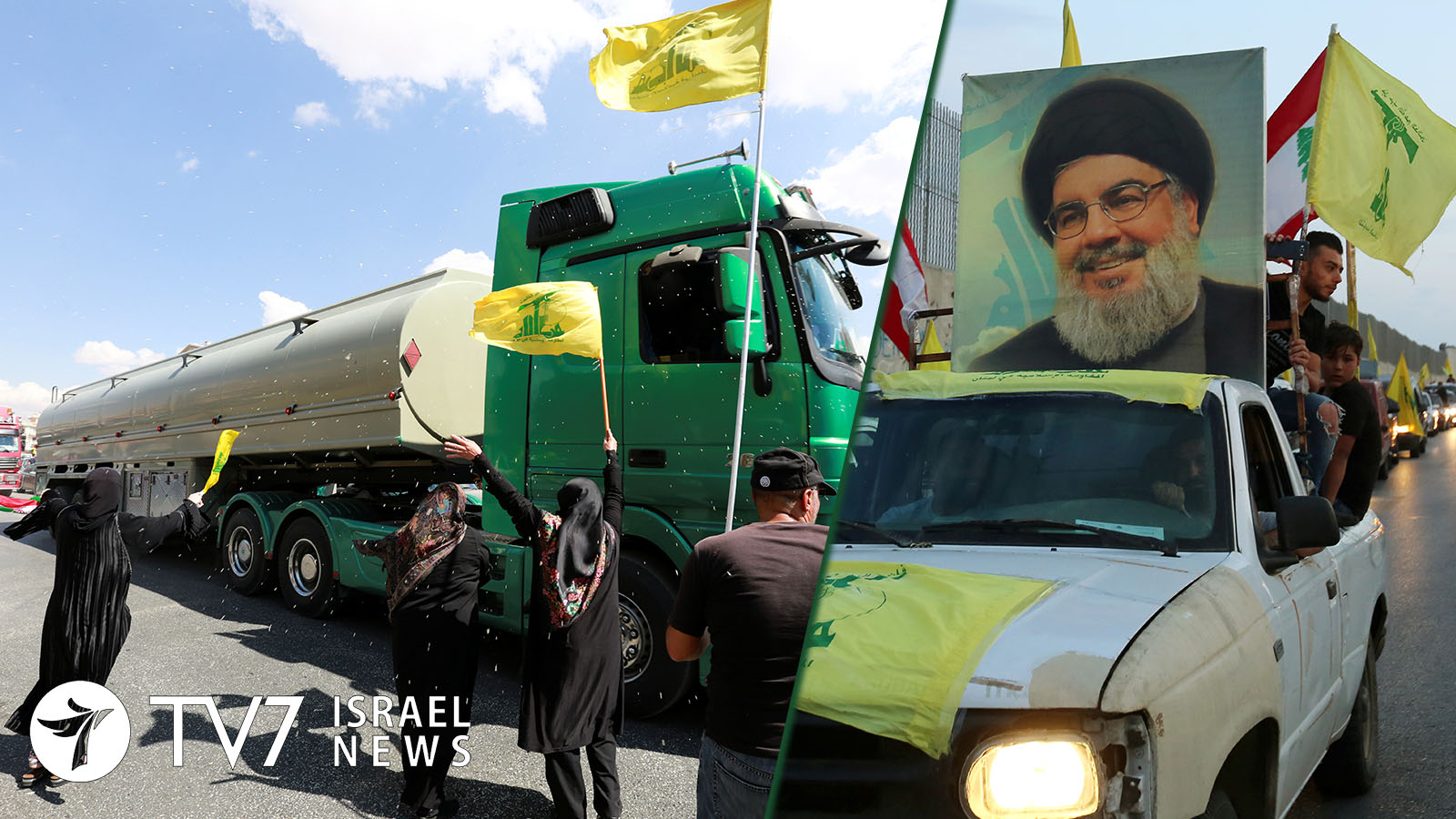Hezbollah declared it has broken a so-called “American siege“ as villagers in Lebanon laud the terror group for facilitating the delivery of Iranian oil to their fuel-stricken country.
By Erin Viner
Hezbollah began bringing Iranian fuel into Lebanon through Syria yesterday. The terror organization’s Secretary General Sayyed Hassan Nasrallah said a second ship with fuel oil is due to arrive in the Syrian port of Baniyas in a few days, with a third and fourth – respectively carrying gasoline and fuel oil – are also expected soon.
“Thank you Iran. Thank you Assad’s Syria,” declared a banner as dozens of tanker trucks sounded their horns as they entered northeastern Lebanon near the village of al-Ain on Thursday. Hezbollah’s yellow flag decorated lampposts as others were waved by villagers, while a woman and boy tossed flower petals at one vehicle.
Both the Shi’ite Muslim Hezbollah and Syrian President President Bashar al Assad are backed by the Islamic Republic.
The Lebanese government has said it was not involved in the fuel import, and a security source said the tankers crossed through an unofficial border from Syria.
The delivery marks an expansion of Hezbollah’s role in Lebanon – where the heavily armed group has long been accused of acting as ‘a state within the state.’ Since being founded by Iran’s Islamic Revolutionary Guards Corps (IRGC) in 1982, Hezbollah has embedded itself in the Lebanese government with ministers and members of parliament. The group has waged numerous wars against Israel, and its militias have fought on Assad’s behalf in the Syrian Civil War.
While Hezbollah asserts that its efforts will ease Lebanon’s crippling energy crisis, but critics fear the move risks provoking sanctions by the United States.
Washington reiterated that its punitive economic measures on Iranian oil sales remain in place, although it has not revealed whether any actions will be slapped against Hezbollah – which it has officially designated as a terrorist group.
The US, which is among other Western governments and donor institutions that say aid will resume after Lebanon enacts major economic reform, supports a plan to ease the energy crisis using Egyptian natural gas piped via Jordan and Syria.
The county’s economic collapse began in 2019 after decades of profligate spending and unsustainable financing by a state renowned for corruption and waste. The crisis led to the devaluation of the national currency by over 90% in two years, plunging more than three-quarters of the country’s population into poverty. The scarcity in fuel, resulting from Beirut’s lack of sufficient hard currency to cover even vital imports, has crippling essential services including the provision of medical care and led to the outbreak of numerous security incidents related to disputes over the acquisition of gasoline.
Lebanon’s current government, formed a week ago under the leadership of new Prime Minister Najib Mikati after a year of political deadlock, approved a proposal yesterday calling for resumption of negotiations with the International Monetary Fund (IMF) and a restructuring of the banking sector. The document now be sent to parliament for a vote of confidence.
This morning Finance Minister Youssef Khalil signed a new contract with the Alvarez & Marsal (A&M) restructuring consultancy to conduct a forensic audit of Lebanon’s central bank. According to a treasury statement, A&M will provide an initial report within 12 weeks of when its team starts work.
Meanwhile, the parliament of the the European Parliament in Strasbourg warned it is weighing the imposition of sanctions on any Lebanese politicians who block the progress by the new government. The crisis in Lebanon was deemed as a man-made disaster in a resolution passed by the European Union member states by an overwhelming majority vote of 575 in favor, 71 against and 39 abstentions.
The parliament “deeply urges Lebanese leaders to keep their promises and be a functional government,” read the bill, underscoring that “the introduction of targeted sanctions for obstructing or undermining the democratic political process remains an option.”
